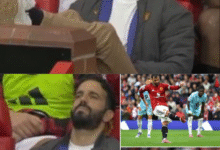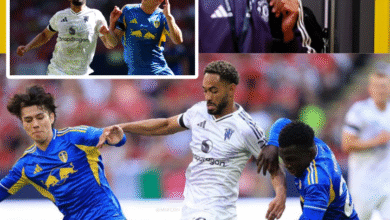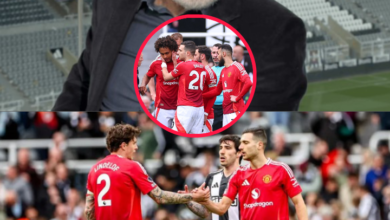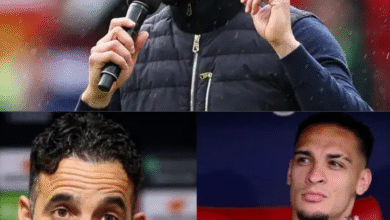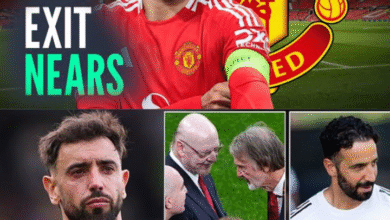Why Kobbie Mainoo Is Yet to Feature Under Ruben Amorim Despite Manchester United’s Midfield Struggles
Amorim explains the youngster’s battle with Bruno Fernandes for a midfield role as questions grow over Mainoo’s lack of minutes
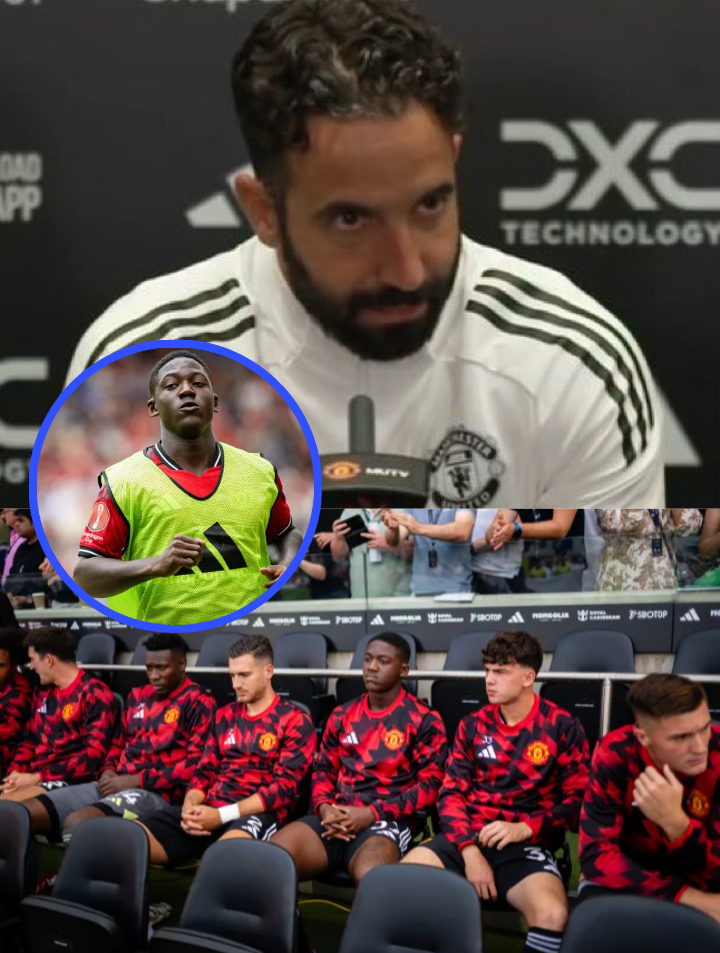
Manchester United manager Ruben Amorim has explained why Kobbie Mainoo has not yet played a single minute of Premier League football this season, despite the midfielder’s growing reputation as one of the club’s most exciting young players.
Mainoo was once again left on the bench during United’s 1-1 draw with Fulham at Craven Cottage on Sunday. The 20-year-old also remained unused in last week’s 2-1 defeat against Arsenal, a decision that has surprised many United supporters given his ability to make an impact in big moments.
Instead of turning to Mainoo when United needed energy in midfield, Amorim once more chose Manuel Ugarte, a more defensive-minded option. The Uruguayan replaced Mason Mount in the 69th minute with United leading 1-0, but when Fulham equalised through Emile Smith Rowe later in the game, Amorim still did not look to Mainoo.
With just minutes left on the clock, the manager made two late changes, bringing on Harry Maguire and Ayden Heaven in place of Luke Shaw and Leny Yoro, further reducing Mainoo’s chances of involvement.
Amorim’s explanation
Speaking after the game, Amorim offered clarity on the decision, revealing that Mainoo is currently in direct competition with club captain Bruno Fernandes for a central midfield role.
“He is fighting for the position now with Bruno,” Amorim told reporters. “I changed to two midfielders. I left Mason Mount there because we wanted to score a goal, and when I made the change, I felt the team needed one holding midfielder close to Bruno. So he just needs to fight for the position with Bruno like it should be at Manchester United.”
It is a blunt but revealing answer. Amorim clearly sees Mainoo as more of a creative midfielder than a deep-lying one, meaning that his game time depends on how often Fernandes plays — and Fernandes rarely misses matches.
The rise and stall of Mainoo
Mainoo’s absence is striking because of how quickly he rose to prominence at Old Trafford. Last season, the teenager made headlines with crucial late goals and fearless performances, establishing himself as one of the brightest homegrown talents in English football. His composure, ability to drive forward, and knack for scoring at decisive moments gave United’s midfield a new dimension.
But the arrival of Amorim in November shifted the dynamics. While the Portuguese coach gave him 12 Premier League starts during the second half of last season, Mainoo often found himself rotated out of big European matches. He was left out of both legs against Lyon and Athletic Bilbao in the Europa League, even though he had rescued United with a late equaliser against Lyon. In the final against Tottenham, he came on for only one minute — a decision that disappointed many fans who had hoped to see him on a bigger stage.
Competition and development
The question now is whether Amorim’s approach will help Mainoo develop or slow his momentum. For a 20-year-old, learning to fight for a spot against a world-class midfielder like Bruno Fernandes can be seen as part of his growth. But there is also the risk that prolonged time on the bench could affect his confidence and rhythm.
Mainoo’s strength has always been his fearlessness. Last season, he showed he could rise to the occasion regardless of the opponent, whether it was scoring late goals or controlling the tempo of midfield battles. United fans have not forgotten his match-winning presence in pressure situations, and many believe he should be trusted with more opportunities.
Statistics back this up. Mainoo scored three goals and provided two assists in just 16 Premier League appearances last season, many of them coming in high-pressure moments. He also averaged more progressive carries per 90 minutes than both Casemiro and Scott McTominay, underlining his ability to push United forward.
Amorim’s balancing act
For Amorim, however, the challenge is about balance. The Portuguese manager has spoken often about creating a team that can control matches, especially in midfield. That is why Ugarte has become such a trusted option — his defensive security allows Amorim to keep Fernandes higher up the pitch. Mainoo, by contrast, is seen as another attack-minded midfielder, which creates a selection dilemma when Fernandes is already on the pitch.
It may also explain why Amorim prefers to ease Mainoo back into the fold gradually. Having endured a tougher second season after his breakout campaign, the manager could be trying to shield him from the pressures of playing every week, instead pushing him to prove himself in training and in limited opportunities.
United fans will be eager to see how this situation develops. With the season still in its early stages, there will be plenty of matches across the Premier League, domestic cups, and Europe that could offer Mainoo the chance to showcase his talent again. But with Amorim making it clear that Fernandes is the benchmark, Mainoo faces perhaps the toughest challenge of his young career — proving he deserves a spot even in a team built around its captain.
For now, Mainoo remains on the fringes, waiting for his moment. Whether Amorim’s tough-love approach pays off or risks stalling one of United’s brightest prospects will be one of the key storylines to watch at Old Trafford this season.
